Raised garden beds are one of the smartest ways to grow vegetables, herbs, and flowers. They improve soil drainage, reduce weeds, and make gardening easier on your back.
But choosing the wrong material to build them can cancel out those benefits and even harm your plants. Some building materials leach harmful chemicals into the soil, affecting not only your crops but also your health and the environment.
While recycling or using what you have on hand may seem practical, certain materials should be avoided at all costs. To help you start safely, here are five materials you should not use for raised garden beds and why they can be harmful.
#1 Old Tires
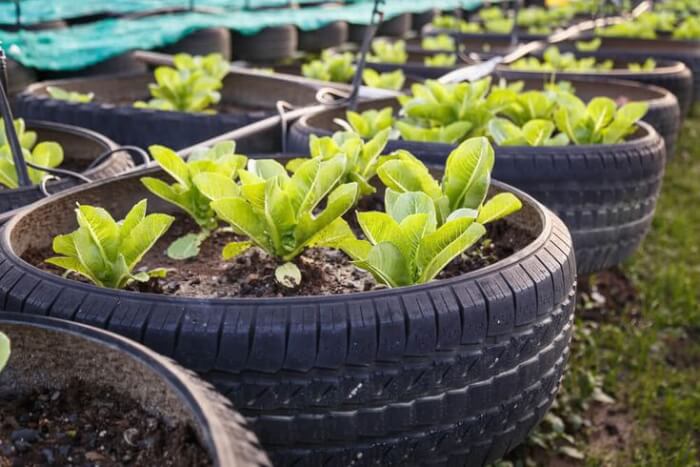
Although reusing old tires is one of the great ways, except in the garden. Tires contain cadmium, lead, and other nasty stuff; these are not good when leaching into the soil, of course, and might also affect your vegetables. They release most toxins and take decades for them to degrade.
In fact, to date, there are no scientific studies that have been conducted to determine whether old tires will contaminate garden soil. But, if you want to fill them up with rich and healthy soil, consider it carefully before using them.
#2 Cinder Blocks
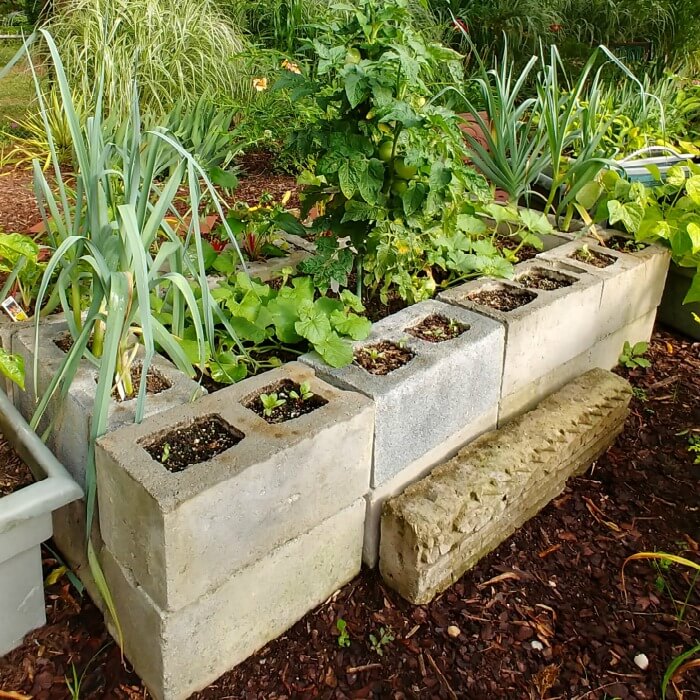
Cinder blocks are often salvaged for DIY projects, but they pose hidden dangers. They are manufactured using fly ash, which may contain arsenic, mercury, and other toxic heavy metals.
When exposed to moisture, these chemicals can leach into the soil where your plants grow. Using them for vegetables or herbs increases the risk of contamination.
If you like the block style, opt for modern concrete blocks labeled safe for garden use. Adding a plastic liner inside the bed can also help protect the soil.
#3 MB Pallets
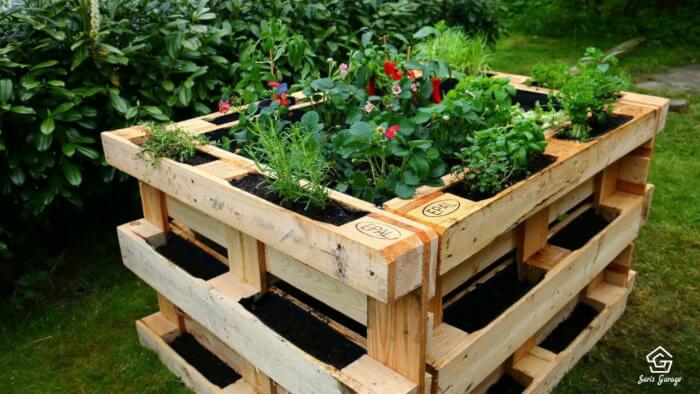
Wood pallets are popular for upcycling projects, but not all pallets are safe. Pallets stamped with “MB” have been treated with methyl bromide, a powerful pesticide.
This chemical is toxic to humans, damaging to plants, and harmful to the ozone layer. Using MB pallets around food crops exposes you to unnecessary risks.
If you want to build a pallet garden, look for those marked “HT,” meaning heat-treated and safe to use. Always sand and seal untreated pallets before planting to extend their life.
#4 Railroad Ties
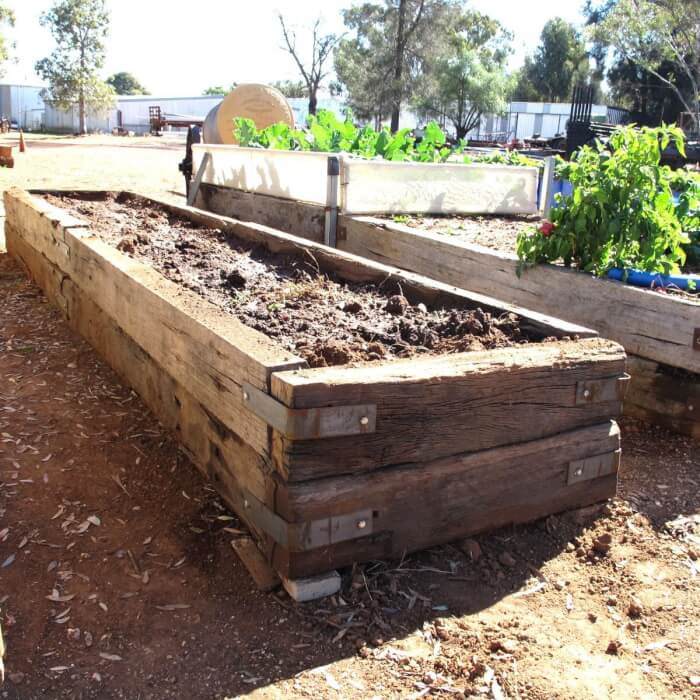
Railroad ties were once a common choice for raised beds, but they are treated with creosote. This tar-based preservative is designed to repel pests and rot, yet it leaches toxic chemicals into the soil for decades.
Creosote harms not only plants but also pollinators, small animals, and people who touch the treated wood. While old ties may look rustic, they aren’t worth the risk in a food garden.
Instead, try cedar or redwood planks, which are naturally rot-resistant and safe for growing edibles.
#5 Pressure-Treated Wood
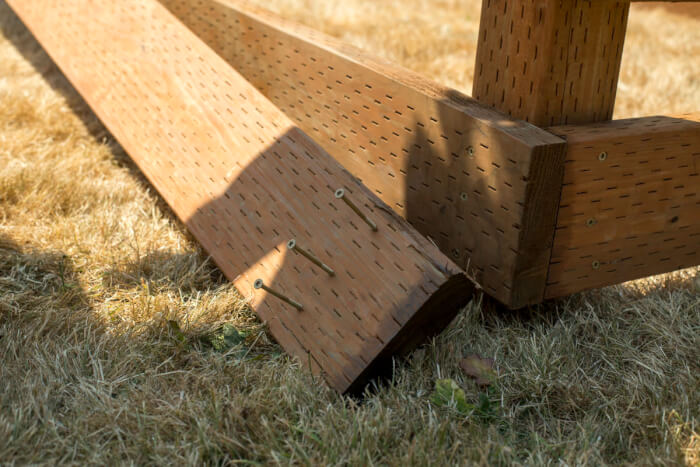
Today’s pressure-treated wood uses alkaline copper quaternary (ACQ), which contains high levels of copper. While less toxic than older arsenic-treated lumber, ACQ still releases copper into the soil.
Too much copper can damage plant roots, reduce yields, and even contaminate groundwater. This makes it unsuitable for raised beds intended for food crops.
If you need long-lasting wood, choose untreated cedar, redwood, or larch, which naturally resist rot. Applying a non-toxic sealant or lining the inside of the bed with landscape fabric can add extra protection.
